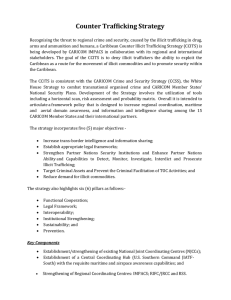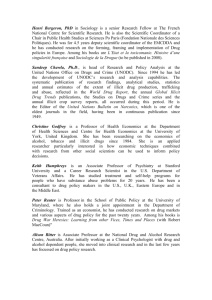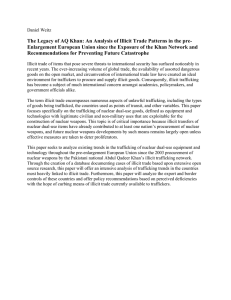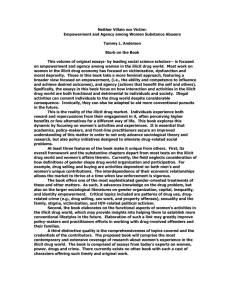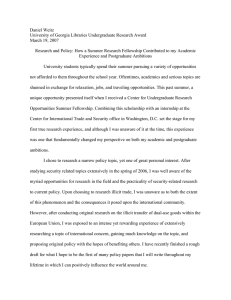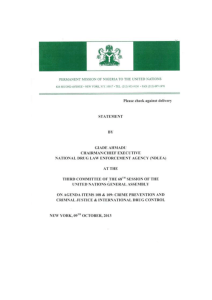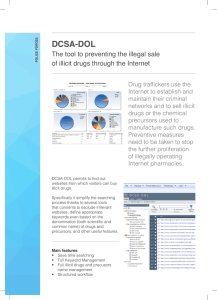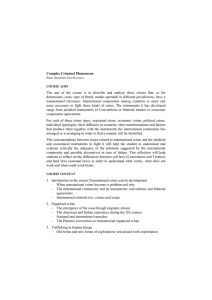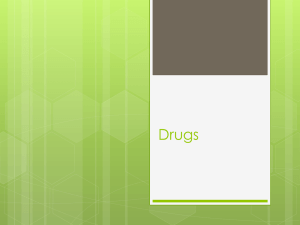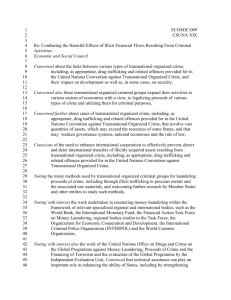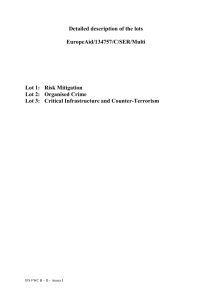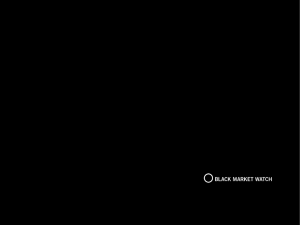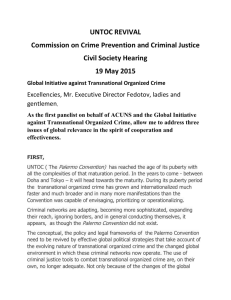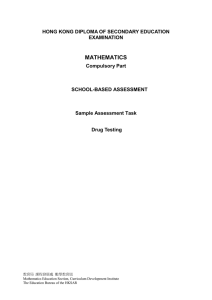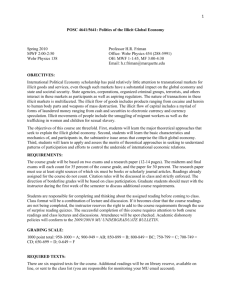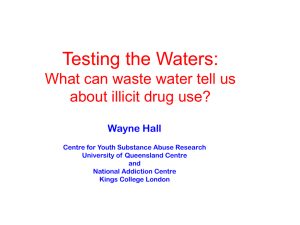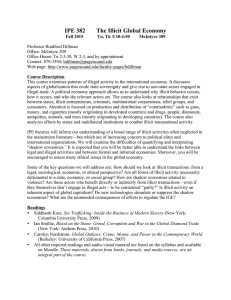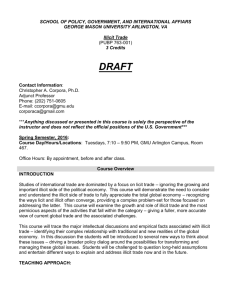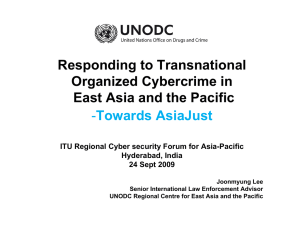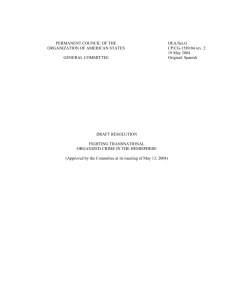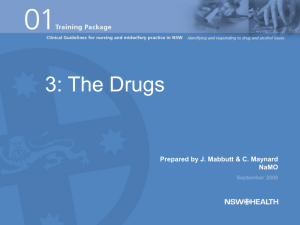3 August, 1997 - Families and Friends for Drug Law Reform
advertisement
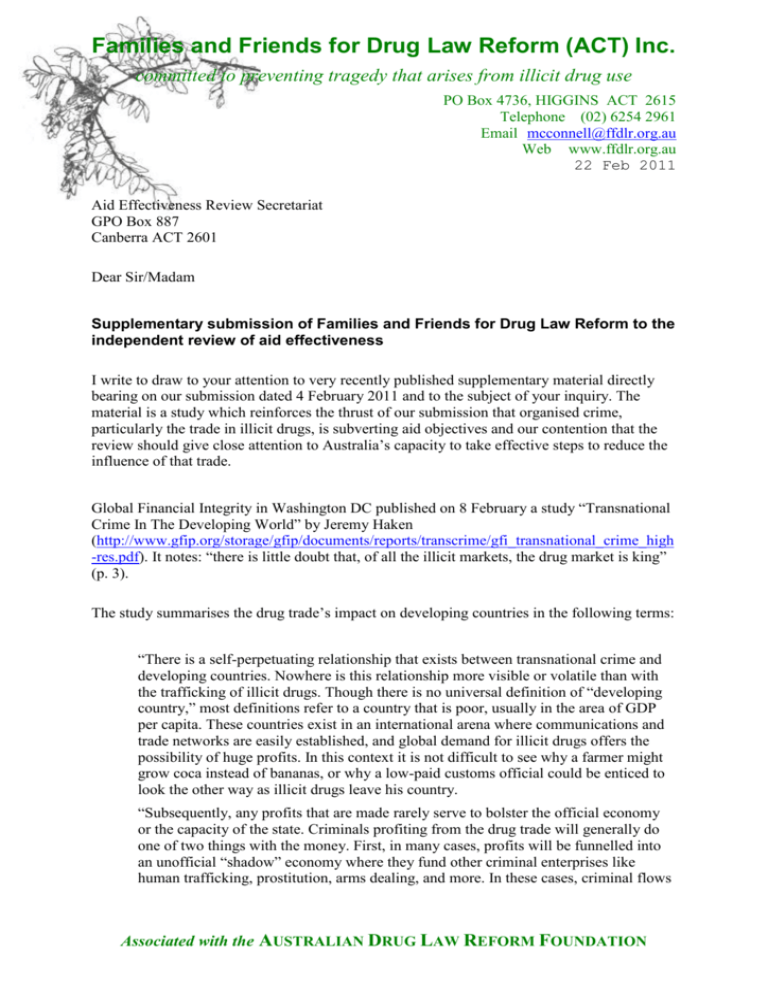
Families and Friends for Drug Law Reform (ACT) Inc. committed to preventing tragedy that arises from illicit drug use PO Box 4736, HIGGINS ACT 2615 Telephone (02) 6254 2961 Email mcconnell@ffdlr.org.au Web www.ffdlr.org.au 22 Feb 2011 Aid Effectiveness Review Secretariat GPO Box 887 Canberra ACT 2601 Dear Sir/Madam Supplementary submission of Families and Friends for Drug Law Reform to the independent review of aid effectiveness I write to draw to your attention to very recently published supplementary material directly bearing on our submission dated 4 February 2011 and to the subject of your inquiry. The material is a study which reinforces the thrust of our submission that organised crime, particularly the trade in illicit drugs, is subverting aid objectives and our contention that the review should give close attention to Australia’s capacity to take effective steps to reduce the influence of that trade. Global Financial Integrity in Washington DC published on 8 February a study “Transnational Crime In The Developing World” by Jeremy Haken (http://www.gfip.org/storage/gfip/documents/reports/transcrime/gfi_transnational_crime_high -res.pdf). It notes: “there is little doubt that, of all the illicit markets, the drug market is king” (p. 3). The study summarises the drug trade’s impact on developing countries in the following terms: “There is a self-perpetuating relationship that exists between transnational crime and developing countries. Nowhere is this relationship more visible or volatile than with the trafficking of illicit drugs. Though there is no universal definition of “developing country,” most definitions refer to a country that is poor, usually in the area of GDP per capita. These countries exist in an international arena where communications and trade networks are easily established, and global demand for illicit drugs offers the possibility of huge profits. In this context it is not difficult to see why a farmer might grow coca instead of bananas, or why a low-paid customs official could be enticed to look the other way as illicit drugs leave his country. “Subsequently, any profits that are made rarely serve to bolster the official economy or the capacity of the state. Criminals profiting from the drug trade will generally do one of two things with the money. First, in many cases, profits will be funnelled into an unofficial “shadow” economy where they fund other criminal enterprises like human trafficking, prostitution, arms dealing, and more. In these cases, criminal flows Associated with the AUSTRALIAN DRUG LAW REFORM FOUNDATION breed more criminal flows, which simply continue to take advantage of the incapacity of the state. “Second and even more damaging, drug profits will often be used to criminalize the state itself. This ordinarily occurs when traffickers induce state officials to abandon their commitment to uphold the rule of law. This corruption is achieved through the promise of some material gain and, if necessary, the threat of harm. In some cases, traffickers will use profits to fund electoral campaigns, thus securing the goodwill of an incoming elected official for the duration of his term. In extreme cases, traffickers will simply use funds to field their own candidates in elections. According to UNESCO, when this happens, “criminals become, both personally and officially, the servants of the very State whose laws they violate, as some sectors of State administration are placed under their legal responsibility” (p. 6). Yours sincerely B McConnell President
